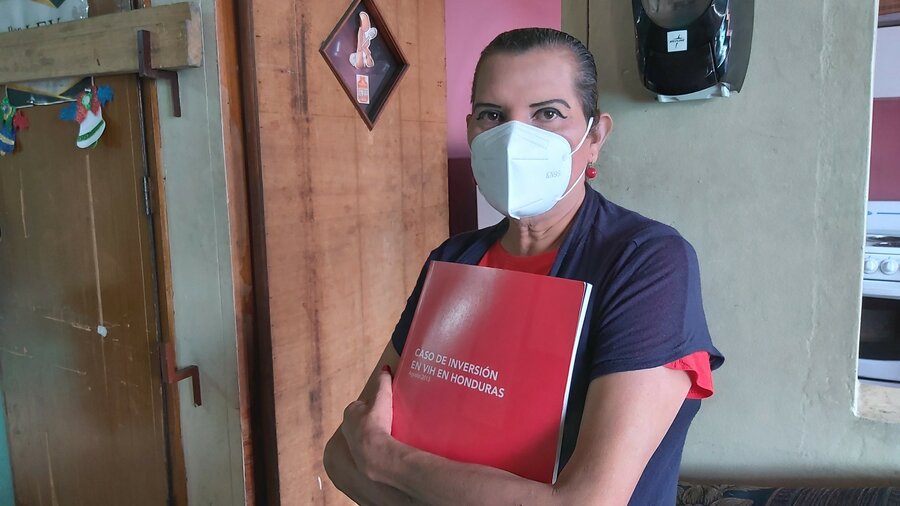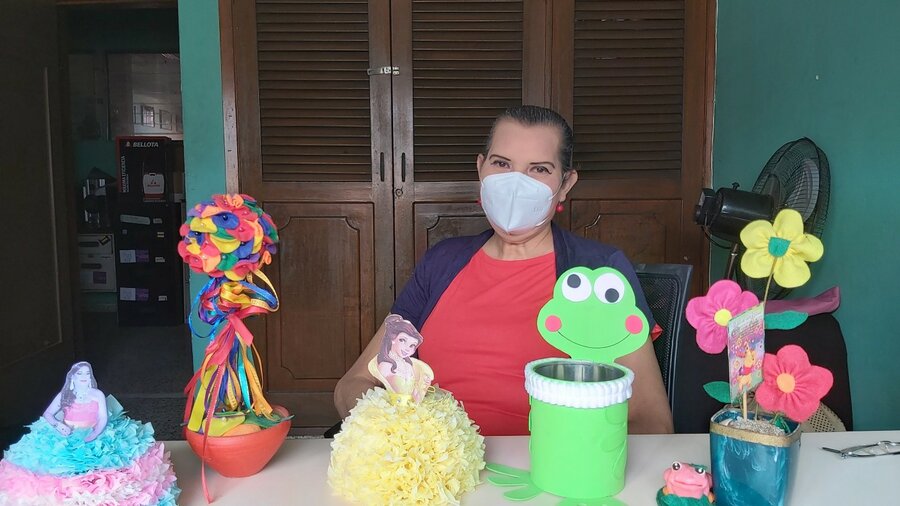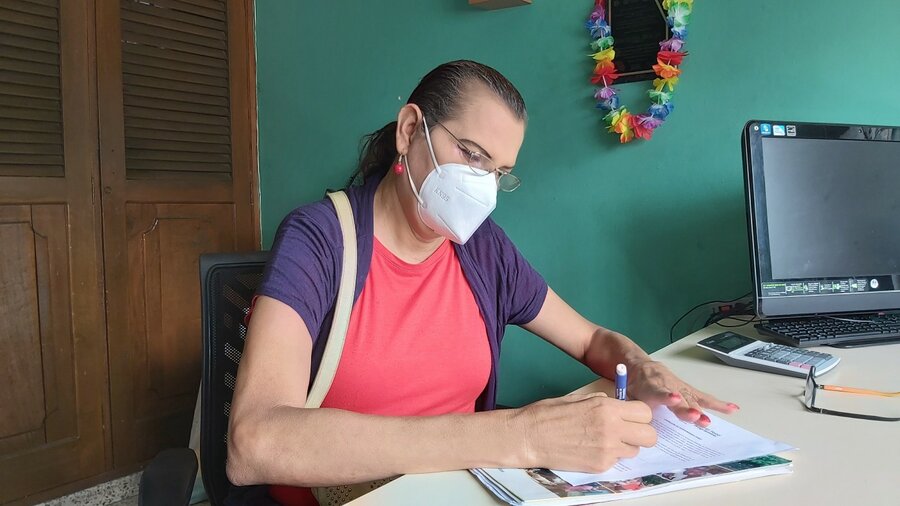World Aids Day: ‘Without food, antiretrovirals don’t work’

A member of Muñecas Arcoiris (‘Rainbow Dolls Collective’), Abigail is a community leader and human rights advocate for the LGBT+ community in Honduras. She is also part of the HIV-positive patient self-support groups.
“The pandemic has affected many sectors in Honduras and people living with HIV have not been the exception as there is a lot of stigma and discrimination against HIV-positive people in the country,” she says. “If you are transgender, the situation is worse.”
Abigail used to have an admin job with a construction company managing building permissions— when the pandemic erupted, like so many others, she lost that job.

“This time has been very difficult,” she says. “Not having the income to buy the food I need has been a challenge, and I currently do crafts at home to be able to survive. The diet we must follow as HIV patients has to be very balanced for the antiretroviral treatment we receive to be effective. We cannot just ‘eat for the sake of eating’.”
‘When people know that you are an HIV positive patient … they identify with you’
For the past 10 years, Abigail has been promoting awareness around HIV prevention. She is also helping HIV-positive patients who arrive at the hospital where she herself receives her medication. “When people know that you are HIV-positive, they have more confidence in consulting and asking,” she says, “because they identify with you, they know that you are going through and living the same as they are.”
She adds: “Every HIV-positive patient should know that food, medicine and exercise are essential for quality of life. If we do not feed ourselves well, the CD4, which are the cells that help the body to protect itself from other opportunistic diseases, go down and we become weakened: a simple flu can then turn into pneumonia. So being well-fed is essential for us.”

Abigail is a beneficiary of the value vouchers which the World Food Programme (WFP) is delivering to people who have fallen into food insecurity because of COVID-19, mainly in urban and peri-urban areas.
“Receiving this help is a blessing,” says Abigail. “It takes away the stress and gives us the peace of mind that we will have the food we need. When I went to the supermarket the first time [with the vouchers], I felt a joy that you can’t imagine. I only bought nutritious food so that the antiretroviral medicine works in my body.”
Abigail is one of the 270,000 people WFP is supporting in Honduras during this pandemic, a crisis that has been exacerbated by hurricanes Iota and Eta, bringing the number of food-insecure people in the country up from 1.8 million to a current 2.3 million.
Learn more about WFP’s work in Honduras
